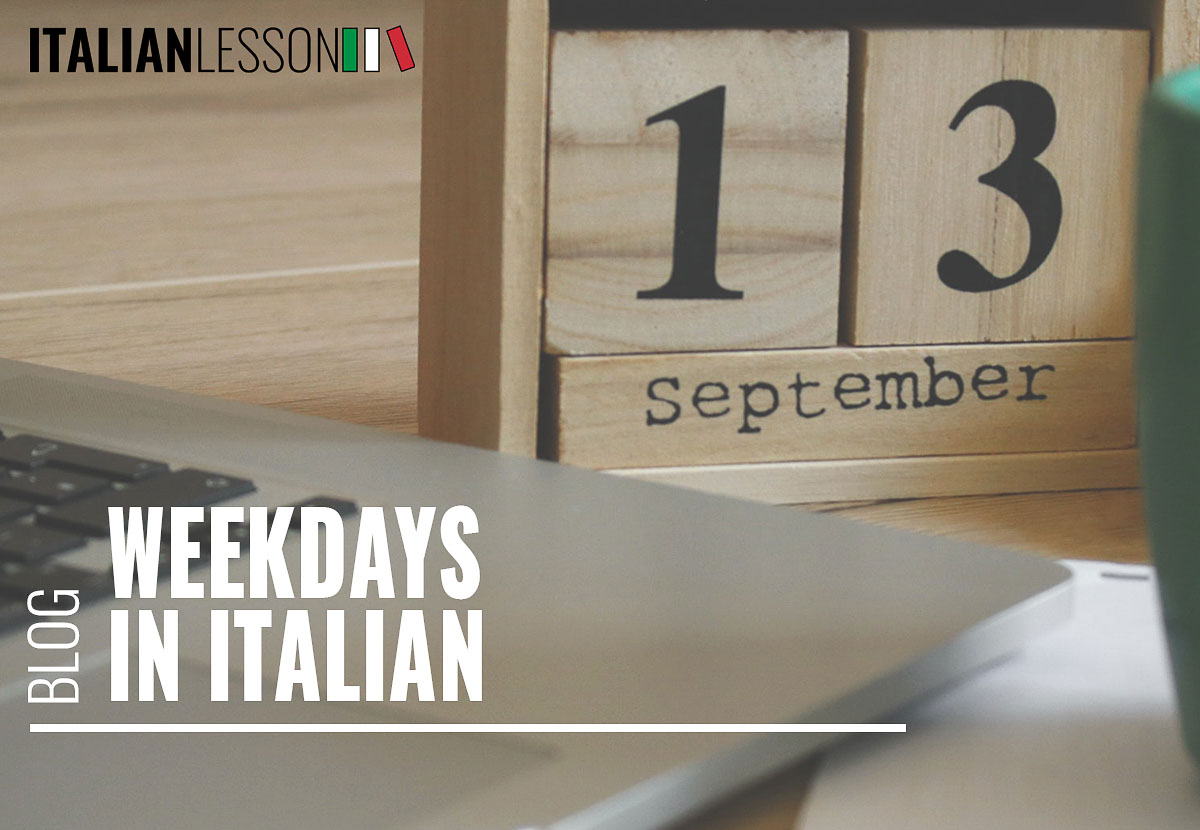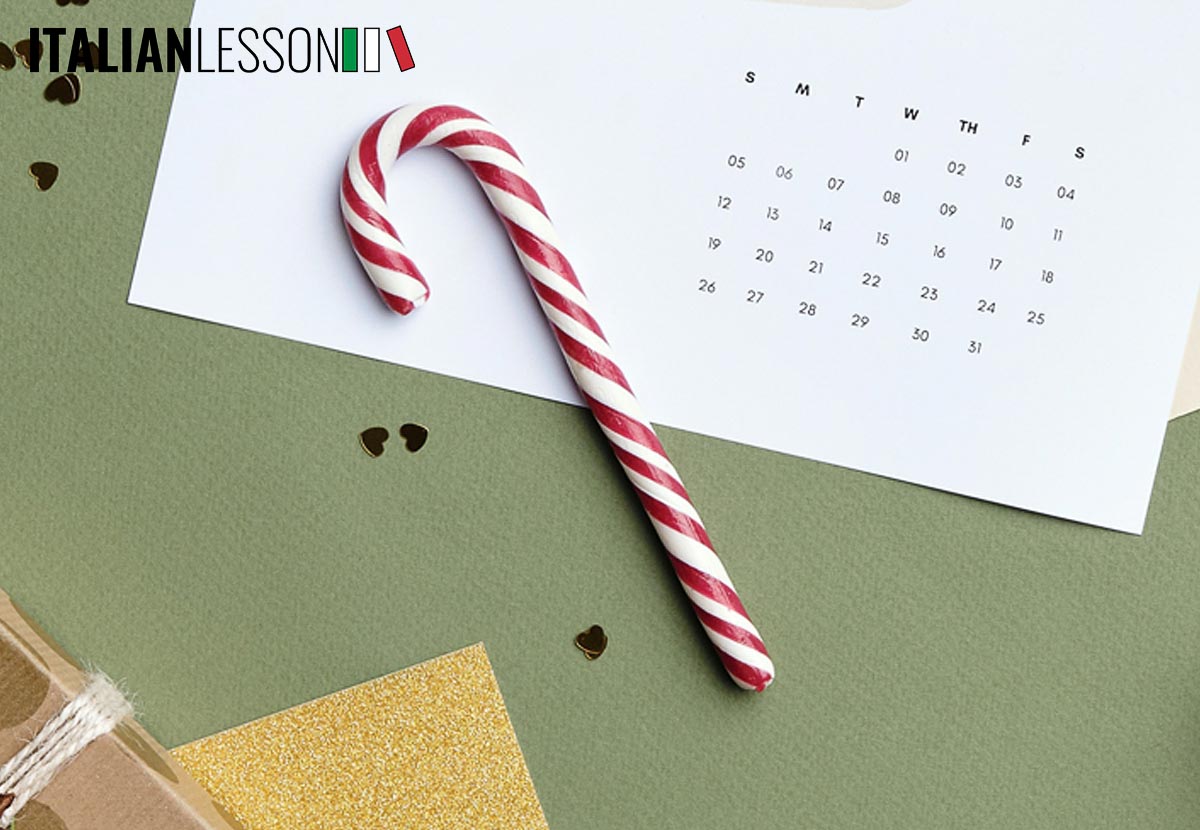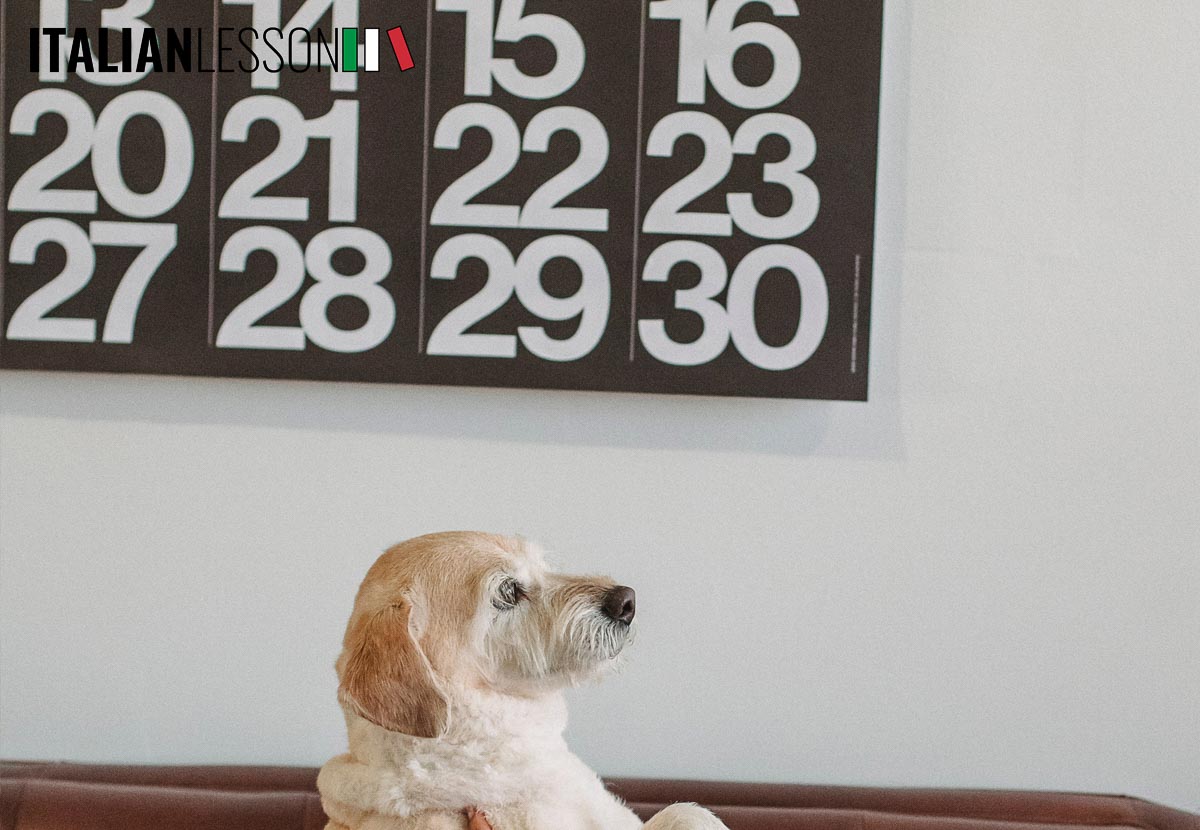
Hey ciao! Are you ready to know what weekdays are the weekdays in Italian?
No problem! We are here to show you how to say the days of the week in the Italian language. We also see how Italian culture, and not only its culture, has been influenced by historical beliefs and events. Don’t worry. We will see them later.
First of all, about the weekdays in italian, what are the days of the week in Italian?
“Days of the week” in Italian is “giorni della settimana”
“Il giorno” (male,sing) / The day, “La settimana” (female, sing) / The week
Mind you: “giorno” also means “morning” in Italian!
The Italian days of the week are:
| The Italian days of the week are: |
| LUNEDì / Monday MARTEDì / Tuesday MERCOLEDì / Wednesday GIOVEDì / Thursday VENERDì / Friday SABATO / Saturday DOMENICA / Sunday |

I think you’ll have noticed that the five Italian weekdays, Lunedì to Venerdì, end in -di. . This happens because “dì” is a synonym of the word “giorno” (“day”).
*Check out also the article “Let’s look at Italian greetings”!
https://italianlesson.it/en/how-to-say-in-italian/lets-see-italian-greetings/
Therefore, let’s see how to build sentences with the days of the week in Italian.
When we want to specify a precise day of the week, we say:
Che giorno è oggi? / What day is it?
Oggi è Giovedì / Today is Thursday”
Martedì vado al corso di yoga / Tuesday I’m going to yoga class
So, we write and/or say the day of the week without the article.
But if the same action is repeated on the same day every week, then the sentence will be:
“In quali giorni della settimana vai in piscina? / On which days of the week do you go to the pool?
Vado tutti i lunedì e tutti i venerdì / I go every Monday and every Friday
As we see in the example, when the actions are repeated on the same days, we add the plural definite article before the Italian weekday.
A little curiosity about Weekdays in Italian
If you study Romance languages (such as Italian, Spanish, French, etc.) you will notice that the days of the week in Romance languages are similar.
Their names have a planetary origin. Their names took inspiration from the name of the sun and the planets.
This happened because the ancient Roman astrologers thought that the heavenly bodies ruled alternately on the first hour of each day.
Of course, astrologers of the time had no telescopes, so there were only seven visible celestial bodies : the moon (Luna), the sun (Sole), Mars (Marte), Mercury (Mercurio), Jupiter (Giove), Venus (Venere) and Saturn (Saturno).
Do the names of these Italian celestial bodies look familiar ?
Exactly! They match the roots of the Italian days of the week!
Every day was named after a planet, satellite, or star that shone most brightly on that day for the Roman astrologers.
That’s why,
| Luna (Moon) – Lune-dì Marte (Mars) – Marte-dì Mercurio (Mercury) – Mercole-dì Giove (Jupiter) – Giove-dì Venere (Venus) – Vener-dì |
Saturday was originally the day of Saturn, which is how Saturday got its name in English.
But the Jewish term “Shabbat” replaced the pagan name in many languages.
Likewise, the name “Domenica” (Sunday) (Latin: Dominica, “God’s Day”) was introduced by Constantine, who was converted to Christianity.
So, it replaces the oldest “Day of the Sun”, except in the English “Sunday” and in the German “Sonntag”.

Other curiosities concerning the days of the week:
https://www.focus.it/cultura/storia/come-sono-nati-i-nomi-dei-giorni-della-settimana
Isn’t it curious?
Hope to see you every day of the week!
